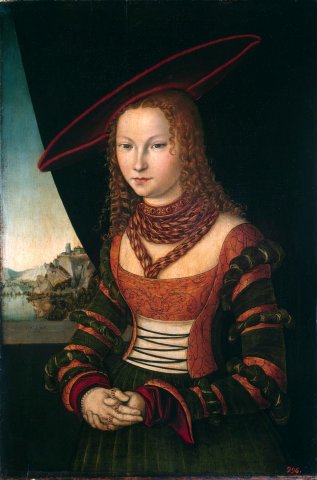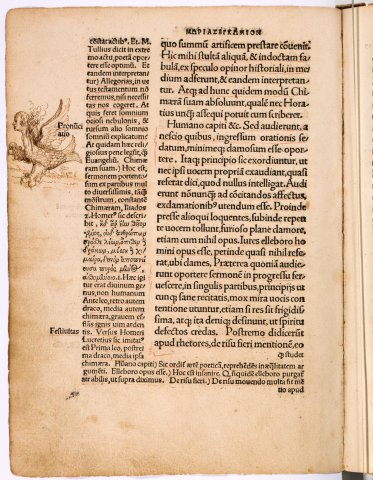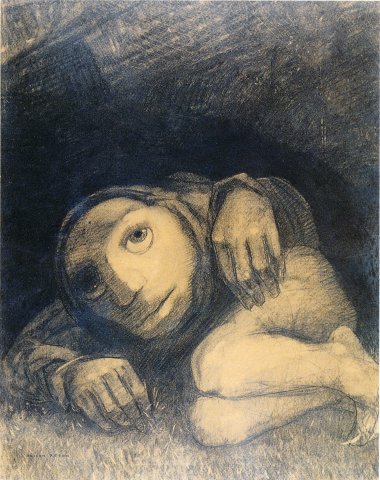Université d'Aix-Marseille, year 2020, Stéphane Lojkine and Francesca Manzari
Woman with black hat edged in red - Cranach
" What is literature for ? ", asks Deleuze in his Presentation of Sacher-Masoch. Like the clinician, literature formulates symptoms, it groups them together, and in this sense it invents illnesses. Literature " serves to name " : to name is not merely to represent the reality of the world (the apparent objective of realist literature) to name is to constitute a double of the world, a reservoir of labels that is also a laboratory of its excesses. Literature names the monstrosity of the world and makes it, for the reader, an object of emotion and pleasure in a sense, then, it eroticizes what it represents. It is useful for the double it collects and the eroticization it produces.
In this course, we'll be asking how this work of literature has been able to, can serve psychology how literature sometimes resists psychology how, finally, it can help the psychologist to hear what, in man, would otherwise remain inaudible, what doesn't know how to or can't give voice.
The course is designed around four modules : " La clef des songes " poses the problem of dream interpretation and the categories of the imaginary ; " Pensées et usages de la folie " looks at the word of the madman, the possibility of hearing it, the need sometimes to adopt it ; " Partages de l'intime " follows the great discovery of the inner voices of consciousness at the end of the 19th century, in parallel with the rise of psychology and psychoanalysis ; " Sensation and cognition " explores the introspective power of literature, through which it attempts to tell how, in the innermost secrets of our brains, we think and feel.
The key to dreams
Joseph's dreams (Raphael's lodge) - Raphael's workshop
Since ancient times, we've attributed meaning to the most incomprehensible dreams. Literature has made great use of these dreams - premonitory, prophetic - and their interpretation. In 1900, Freud revolutionized our relationship with dreams by claiming to establish a science of dream interpretation, which in turn reveals the presence and modus operandi of the unconscious within us. The imaginary material at work here is the very material of literature. It reveals the first power of literature, which is the power to signify secrètement. But can we reduce this indirect meaning to a simpler, clearer one? Can we read into literature the principles and codes of psychology ? Can psychoanalysis elucidate the true meaning of literary texts? In this investigation, the devil of interpretation borrows the most charming faces of seduction...
- Interpreting : Freud, Hoffmann, Poe
- Thinking differently : Jung, Paracelsus, Diderot
- Care : Bettelheim, Grimm, Perrault
Thoughts and uses of madness
Chimère (In Praise of Madness) - Holbein
Do we pay attention to the word of the mad ? At best, we /// At worst, we lock him up so as not to hear him. But literature reveals that the word of the madman is not just a deranged word it says something else, it signifies otherwise, as if coming from another world. This is its second power. Through this other word, the word of the madman, is said what the institution, the established power, cannot tolerate through it is said resistance to meaning, meaning in nonsense, and the prestiges of the incomprehensible are deployed through it, finally, the body exposes itself and expresses itself, silencing reason in favor of another reason.
- Subversions : Foucault, Erasmus, Diderot
- Resistances : Derrida, Descartes
- Hysteria : Charcot, Maupassant, Didi-Huberman
Sharing the intimate
The Dream - Odilon Redon
When I'm alone in the company of my book, a space opens up for me in which a voice is heard, an intermediary between open, socialized, public speech and the imagination of the dream : a voice of consciousness, a voice of thought folded into the interiority of the self. Literature enables us to make this voice, so important to the consistency of our lives, speak. Through it, it signifies intimately : this is its third power. Through this voice of consciousness, literature reveals the territories of the intimate and what shares them : hauntings and forgetfulness, tropisms and disgusts, desires and submissions.
- A theory of interiority ? Henry James put to the test by James Joyce, Virginia Woolf, Valery Larbaud, Italo Svevo
- Bouveresse, Wittgenstein and the myth of interiority
- Literary efficacy of perversion : Deleuze and Sacher-Masoch
Sensation and cognition
Naming the sharing of the intimate is not just about revealing boundaries ; it's also about showing the paths taken by thought folded into itself. Literature then signifies self-reflexivity, and this is its fourth power. It makes thought-in-the-making the object of its thought. Recording the mnemonic traces of sensation giving itself to be felt, of thought springing from sensation, it provides the sensitive image of cognitive experience in the process of being made : this is the " Je me voyais me voir " of La Jeune Parque.
- Marcel Proust and cognitive psychology
- Robert Musil, The Man without Qualities
- Gustav Fechner : psychophysics and poetry
Bibliography
The key to dreams
Caliban reclining - Odilon Redon
- Freud, L'Interprétation du rêve [1900], trans. J. P. Lefebvre, Points Essais, 2013 (chap. 2 and chap. 6)
- Freud, L'Inquiétante étrangeté et autres essais [1919], trans. B. Féron, Gallimard, Folio, 1988
- Carl Gustav Jung, Psychology and alchemy, Synchronicity and paracelsica,Mysterium conjunctionis, in La Réalité de l'âme, tome 2, ed. Michel Cazenave, Le Livre de Poche, La Pochothèque, 1998
- Bruno Bettelheim, Psychoanalysis of Fairy Tales[1976], in Parents et enfants, ed. Danièle Lévy, Laffont, Bouquins, 1995
Literary texts in support
- Denis Diderot, Le Rêve de D'Alembert [1769], ed. Colas Duflo, GF, 2003
- Les Frères Grimm, Contes pour les enfants et la maison, ed. N. Rimasson-Fertin, Corti, 2009, " Hänsel et Gretel " (n°15), " Cendrillon " (n°21), " Le Petit Chaperon /// Rouge "(n°26), " Blanche-Neige " (n°53)
- E. T. A. Hoffmann, L'Homme au sable [1817], GF Etonnants classiques, 2015
- Charles Perrault, Le Petit Chaperon rouge, La Belle au bois dormant and Cendrillon[1698], in Contes en prose, Le Livre de poche, Libretti, 2004
- Edgar Allan Poe, La Lettre volée [1844], in Histoires extraordinaires, tr. Ch. Baudelaire, Livre de poche, 1972
Pensées et usages de la folie
- Jacques Derrida, " Cogito et histoire de la folie ",
- in L'Écriture et la différence [1967], Seuil, Points, 1979
- Georges Didi-Huberman, Invention de l'hystérie [1982], Macula, 2012
- Michel Foucault, Mental Illness and Psychology [1954], Puf, Quadrige, 2015
- Michel Foucault, Histoire de la folie à l'âge classique [1972], Gallimard, Tel, 1982
- Freud and Breuer, Studies on hysteria [1895], PUF, 1956
Literary texts in support
- Erasmus, Eloge de la folie [1511], ed. J. Cl. Margolin, Gallimard, Folio, 2010
- Diderot, Le Neveu de Rameau [1760-1770], ed. Marian Hobson, Droz, 2013
- Maupassant, Le Horla [1886-1887], Gallimard, Folio, 2014
Partages de l'intime
- Henry Bergson, Cours II. Leçons d'esthétique : leçons de morale, de psychologie et de métaphysique, PUF, 1992
- Jacques Bouveresse, Le Mythe de l'intériorité : experience, signification and private language in Wittgenstein, Minuit, 1987
- Gilles Deleuze, Presentation of Sacher Masoch. Le froid et le cruel, Minuit, 2007
- William James, Précis de Psychologie, tr. N. Ferron, Les Empêcheurs de Penser en Rond, 2003
- Ludwig Wittgenstein, Remarks on the philosophy of psychology, trans. Gérard Granel, Trans-Europ-Repress, 1998
Literary texts in support
- Henry James, A Portrait of a Lady and Other Novels, ed. Évelyne Labbé, Gallimard, Pléiade, 2016
- James Joyce, Ulysses, " Penelope " (the last chapter), tr. Tiphaine Samoyault, Galimard, 2004, Folio, 2013
- Virginia Woolf, Mrs Dalloway [1925], tr. by M.-C. Pasquier, Gallimard, Folio, 1981
Sensation and cognition
- André Didierjean, La Madeleine et le Savant. Balade proustienne du côté de la psychologie cognitive, Seuil, Science ouverte, 2015
- Isabelle Dupéron, G. T. Fechner. Le parallélisme psychophysiologique, PUF, 2000
- David Lapoujade, Fictions of Pragmatism : William and Henry James, Minuit, 2008
Literary texts in support
- Valery Larbaud, Amants, heureux amants [1923], Gallimard, L'Imaginaire, 1993
- Robert Musil, L'Homme sans qualités [1930-1932], tr. by P. Jaccottet, Points, 2011
- Marcel Proust, À la recherche du temps perdu [1913-1927], Gallimard, folio, 1999
///
Littérature et Psychanalyse
Archive mise à jour depuis 2019
Littérature et Psychanalyse
Le Master LIPS
Séminaire Amour et Jouissance (2019-2021)
Amour et Jouissance
Jouir et Posséder
Vers l'amour-amitié
Les signifiants du désir
50 nuances de Grey
Duras, la scène vide






